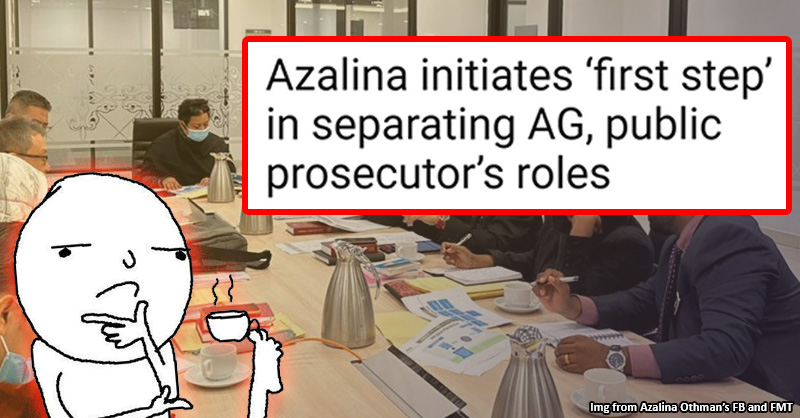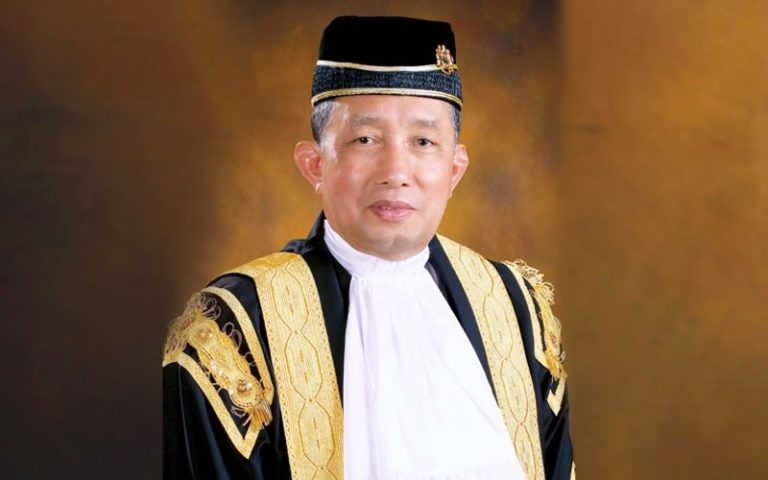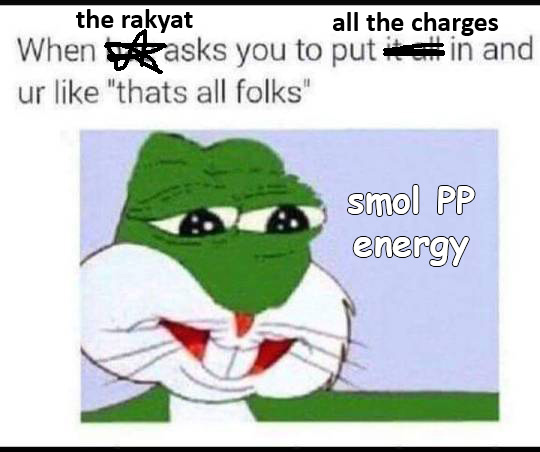Azalina is separating the AG and public prosecutor’s roles. Here’s why it matters.

- 373Shares
- Facebook324
- Twitter8
- LinkedIn6
- Email9
- WhatsApp26
Barely days after the announcement of a new Cabinet, and we’re already seeing some action. One of the things going up in the news recently is that Azalina Othman, the newly appointed Minister in charge of Law and Institutional Reforms, had initiated the ‘first step’ in separating the public prosecutor’s office from the Attorney-General’s Chambers (AGC).
On Dec 7, she attended a meeting with representatives from the AGC to discuss the matter, and it was decided that the AGC would prepare a paper on the restructuring plans.
“This is the first step towards the separation of powers between the attorney-general and the public prosecutor, and I hope that the good cooperation between the AGC and our office will bear fruit as soon as possible.” – Azalina Othman, translated from her Facebook post.
If you’re raising one eyebrow quizzically and wondering what the heck would that do, you’re probably not alone. But fear not! We’ll try to make you understand in 4 minutes or less, starting with…
What’s an AG? What’s a public prosecutor? And why the need for separation?

Basically speaking, the Attorney General (AG) is the government’s head lawyer. Selected by the Agong on the advice of the Prime Minister, the AG advises the government on legal matters and, among other things, holds important positions regarding Malaysia’s law-related stuff:
- Chairman of the Legal Profession Qualifying Board (where lawyers get their certification)
- member of the Judicial and Legal Service Commission (government branch of legal officers)
- member of the Pardons Board of each State in Malaysia (helps decide whose crime gets forgiven)
The Public Prosecutor (PP), on the other hand, is the principal prosecuting authority of the country: he or she has control and direction over all criminal prosecutions and proceedings conducted under the Criminal Procedure Code (CPC). In other words, as long as it’s not a Sharia, military, or native case, the PP gets to decide which cases to take to court, what law to charge people with, and whether or not cases should be dropped, among other things.
In simpler terms, the AG makes sure that everything the Government does is legally OK, while the PP makes sure that criminals, whoever they are, gets the big hand of the law.

Some countries have different roles for the AG and PP, while others combine the two. Malaysia is the latter case, because back in 1957 when they’re drafting the law, it doesn’t seem like a huge deal for one person to be doing both the AG’s and PP’s jobs. In theory, it shouldn’t matter. The AG is theoretically not answerable to anybody, so he should be free to prosecute even the Prime Minister if he commits a crime.
However, because the AG is appointed by the Agong on the advice of the PM, he could also theoretically be removed at any time and replaced with another if he offends the PM (or any of his buddies). Because of that, the AG in practice is not truly independent. Couple that with the seemingly absolute and unquestionable powers of the AG, and it’s not hard to imagine, for example, a politician’s corruption case getting dropped for no good reason.

So how will separating the AG and PP help?
As said by Azalina, this is just the first step. We don’t know how the actual plan will be yet, but the crux of the problem is the PP’s powerful powers to influence whether or not politicians can get charged or get away scot-free, so maybe one way is by making the PP less open to manipulation by making the role more secure. Maybe a tenure for the role. Or perhaps by not just letting one person (i.e. the Prime Minister) decide who the AG and PP will be, by having the Parliament vote on the right person for the job.
You can read a more detailed take on the matter (with examples!) in this paper from IDEAS, but whichever way this goes, hopefully the final result will be good enough that we don’t have to assume that whoever holds the government will get their court cases dropped.
- 373Shares
- Facebook324
- Twitter8
- LinkedIn6
- Email9
- WhatsApp26
